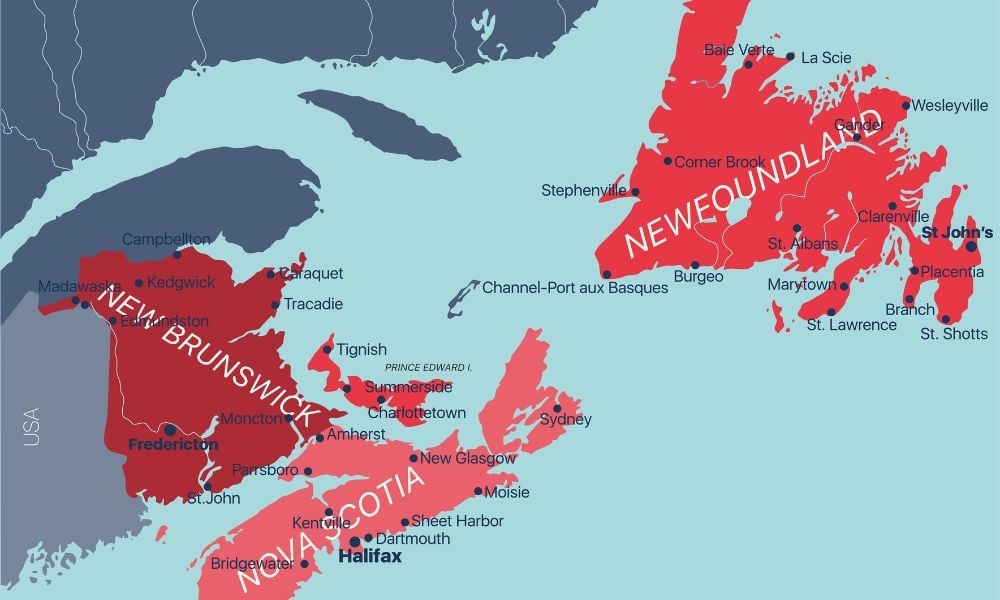
‘We are removing needless and burdensome barriers’

Nova Scotia is pressing ahead with efforts to eliminate interprovincial trade barriers within its jurisdiction.
The province is introducing legislative amendments to enhance the new Traffic Safety Act, expanding access for a broader range of commercial trucks and passenger vehicles registered in other provinces. Previously, certain vehicle types were prohibited from operating in Nova Scotia despite being legally registered elsewhere in Canada.
"Nova Scotia wants to see free trade nationwide, and we are leading by looking within our own regulations and practices to see where we can remove barriers," said Premier Tim Houston. "If a vehicle can operate in another province or territory, it should be able to operate in Nova Scotia. We are removing needless and burdensome barriers. This is another example of how we are taking a Team Canada approach to creating a more prosperous future."
The changes are slated for introduction this fall, according to the provincial government.
Despite the reforms, safety remains a priority. The Registrar of Motor Vehicles will retain authority to impose specific conditions on vehicle operations to protect public safety and infrastructure. These may include access restrictions on certain roads and bridges or age-related requirements for passengers in specific vehicle classes.
Vehicles will be required to comply with all other existing provisions of the Motor Vehicle Act, including inspections and insurance. This act’s regulations take effect June 3.
Nova Scotia also plans to amend the Nova Scotia Building Code Regulations, enabling factory-built (modular) buildings that comply with the National Building Code to be installed without adhering to additional Nova Scotia-specific standards.
Currently, manufacturers are required to redesign the same building model for every province depending on that province’s standards. That increases costs, causes delays and creates barriers for standardization and interprovincial trade, said the provincial government.
“Both of these moves are to address unique and urgent challenges brought on by the trade war and housing crisis,” said Houston. “It is about fairness for workers, opportunity for businesses and respect for Canadians’ right to move, work and trade freely across their own country, and it’s about getting people into safe and affordable housing, faster.”
The proposed changes will apply solely to factory-built construction, the government clarified.
A 45-day public consultation period will be held before any amendments to the regulations are enacted.
Together, these regulatory updates to the Motor Vehicle Act and the Building Code Regulations support the intent of the province’s Free Trade and Mobility Within Canada Act by removing key interprovincial barriers, according to the government.
Nova Scotia introduced the Free Trade and Mobility within Canada Act earlier this year.
Earlier, Ontario and Manitoba signed a Memorandum of Understanding (MOU) to support the removal of interprovincial trade barriers between the two provinces.
Earlier this year, Anita Anand—formerly Canada’s minister of transport and internal trade and now the foreign minister—announced the upcoming removal of an additional federal exceptions in the Canadian Free Trade Agreement (CFTA).
Recently, the Canadian Federation of Independent Business (CFIB) called on federal, provincial, and territorial governments to remove key barriers to labour mobility, as the Committee on Internal Trade prepares to deliver its action plan by June 1.
However, calls for the removal of interprovincial trade barriers may not be as good a solution as promised, according to a previous report from the Canadian Centre for Policy Alternatives (CCPA).
“The attempts to remove so-called interprovincial trade barriers is mostly a push for ‘mutual recognition’ of regulations – a process by which all provinces could be forced to accept the least stringent regulations for safety, environmental protection, and consumer protection,” said Marc Lee, senior economist at CCPA.
“It is a way of attacking provinces’ ability to pass laws for environmental, worker, and consumer protection.”